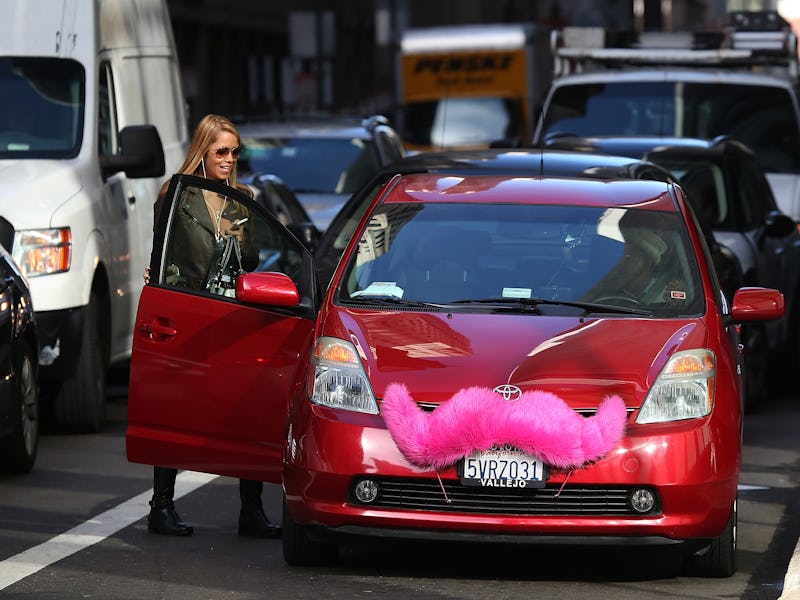Lyft is Going To Start Monitoring Driver's Racist Behavior
On its platform, at least.

Can a company use data to make its platform less racist? Lyft plans to find out by keeping track of when drivers cancel rides, take longer to reach customers, and otherwise underperform when they’re working in “minority census tracts,” where people of color make up more than 30 percent of an area’s population.
The plan was revealed in response to U.S. senator Al Franken asking the company how it planned to curb racism on its platform. Franken’s inquiry was motivated by a National Bureau of Economic Research study which said that Lyft and Uber drivers in Seattle and Boston discriminated against black men using the ride-hailing services.
The study found that black men had to wait 35 percent longer than white men to have a ride confirmed in Seattle and that drivers in Boston canceled rides for prospective customers with black-sounding names about twice as often as they did for riders with white-sounding names.
Lyft pushed back on the study’s findings in its response to Franken. But it also said that it’s taken steps to rectify the problem: it “sent a message to all drivers encouraging them to discuss this issue with their passengers and reminding them of their obligations under Lyft’s anti-discrimination policies.”
It said it will also “enhance our regular thorough review of ride cancellations” by “including a focus on cancellation rates and quality of service” in minority census tracts. This means the company will now pay special attention to places where ride cancellations and other problems might have a more obvious racial aspect than in areas where the root of the problem isn’t so readily apparent.
Another solution is in the works. News broke in May that [Lyft and GM plan to] (https://www.inverse.com/article/15264-lyft-gm-will-put-self-driving-cars-on-the-road-by-2017) debut self-driving vehicles in 2017. Uber started testing autonomous cars in September, so it’s no surprise that Lyft wants to follow suit.
Autonomous cars have many benefits. They’re safer than human drivers, for one, but they’re also supposed to ship without the same biases. A self-driving Lyft wouldn’t care about the color of a rider’s skin or how common their name is; all it needs to know is if they can pay for their ride.
In theory, at least: several incidents have shown that A.I. can be unintentionally racist: one judged a beauty contest and found lighter-skinned people more attractive than their darker counterparts; another denied a passport application because it said an Asian man’s eyes were closed. They weren’t.
But there’s an easy way to bypass that problem — just don’t have the A.I. scan Lyft users’ profiles. Let them hail a ride, select a destination, and pay when they arrive. Done. So long as the company didn’t keep its cars out of the minority census tracts, and barring any unforeseen circumstances, these self-driving vehicles would be the great equalizers ride-hailing services are supposed to be.
That’s all a little way off. Right now Lyft will settle for good-ol’ fashioned data analysis to fight good-ol’ fashioned racism. And hey, if people want to give something besides Uber and Lyft a shot, now they have more options than before.